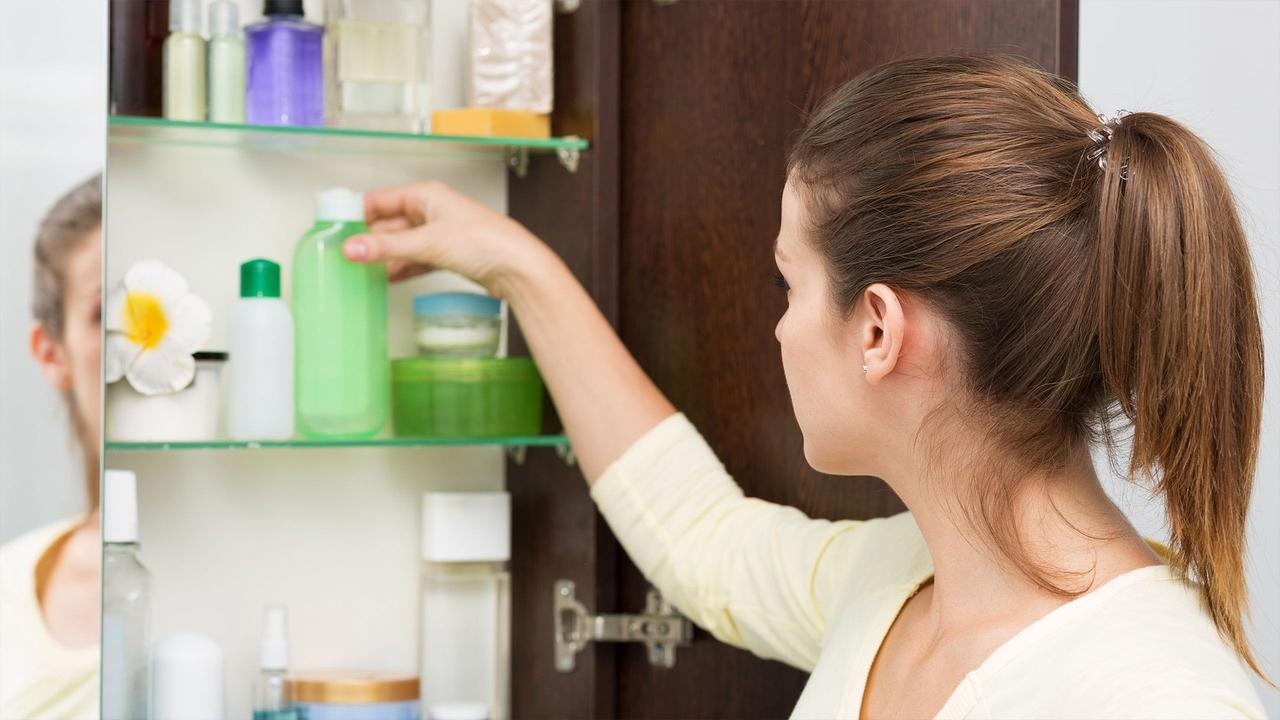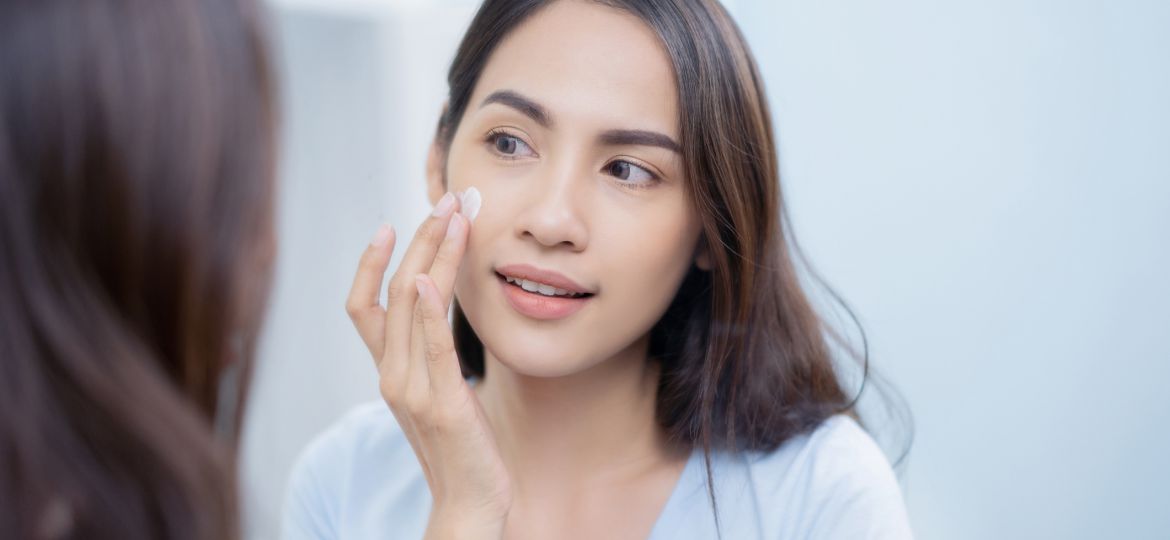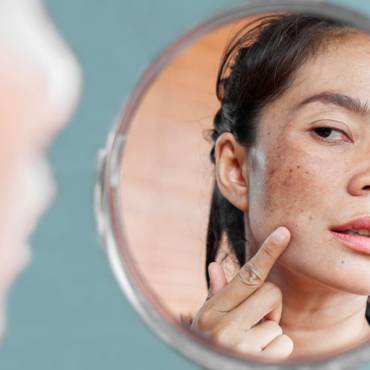People are exposed to a broad range of chemicals in everyday life, most of which are naturally present in the environment. Still, others are derived from daily human activities, water, foods, and various daily use products. Our skin occupies the largest surface of the body interacting with the external environment. It is exposed involuntarily to abiotic and biotic factors and voluntarily due to personal care products cosmetics use. Many of these are used regularly in different ways; consequently, these products are assumed to enhance our appearance and hygiene. Most of these products are considered to be harmless for the body’s health. Almost all cosmetics products directly come in contact with skin and mucosa; therefore, it is important to ensure that they do not contain potentially dangerous substances. All the ingredients used in cosmetic and personal care products should meet certain regulatory requirements. However, many substances are allowed within certain limits due to their toxic nature at higher strength. Other important aspects should be considered, which include the possibility of long-term effects.
On the other hand, other substances may induce several adverse effects, such as contact dermatitis and allergic reactions. Are you confident enough in choosing the product for yourself when your favorite market is loaded with a lot of quality and cost-effective products? Let us discuss the 5 steps to safer cosmetic and personal care products that are high quality and super economical.
Best ways to choose safe cosmetics and personal care products
Everyone has their way of selecting safe cosmetics, but it is especially important to know that choosing the wrong cosmetic may cause serious consequences. These products have a direct effect on our bodies. Buying fake cosmetics will destroy the inherent beauty.
- Purchase only from authorized retailers – Personal care products cosmetics manufacturers are required by law to ensure the safety of their products. They don’t want to be responsible for fake versions that could contain harmful ingredients or heavy metals. To ensure you invest in an authentic product and not a fake, buy your products directly from the company or one of its authorized distributors.
- Do not go with cheap deals – Lipsticks and nail polish to deodorant, hairspray, perfumes, hair dyes, soaps, cleansing wipes, all personal care products regulated as cosmetics. If you see heavily discounted items from an unauthorized retailer online or elsewhere, it’s likely not the real product. Every one of us likes a good deal, but if you see one that is too good to be true, it probably is. Generally, these cheap skincare products do not contain skin protectants; therefore, they cause skin irritation, swelling, acne, rashes around the application areas.
- Stay away from substances that seriously affect users – Parabens allow products to survive for months, even years, in your bathroom cabinet; however, they can easily enter your body through your skin when you use these products. Studies found that parabens can cause cancer as they can penetrate the skin and remain within the tissue. Parabens, also known as Para hydroxybenzoic acids, appear in hair removal creams, deodorant sprays, underarm rollers, hair removal creams, cleansers, shaving gels, and shampoos. Sodium lauryl sulfate is found in cosmetics such as bath oils, shampoos, shower gels, and dishwashing liquid. It is probably the most dangerous ingredient present in cosmetics and other personal care products. Phthalates are found in baby products, including baby shampoos and powders; chemical exposure is often liked to alter hormone levels and allergies and increase the risk of eczema.
- Listen to your body and pick the right product for you – You purchase a kit of expensive, high-quality whitening products from a big renowned brand in the supermarket. You think they will do wonders for your skin. But that’s just what you think; cosmetics have their characteristics. They are suitable for different skin types. You should find out for yourself which line of skincare products will work for your body, which ingredient will benefit your skin, or your hair usually depends on your skin type.
Dry skin – Individuals with dry skin should choose products with high moisture content. Facial cleansers should be mild and detergent-free. Detergents are surfactants, and long-term usage can cause skin irritation and lead to some degree of damage. Therefore, it is important to avoid surfactants in personal care products and decorative cosmetics. It is best to pick a cream formulation than gel preparations. Use products extracted from olive oil or coconut oil. Makeup products should have high moisture for the skin on application.
Oily skin– This type of skin is the result of the overproduction of sebum from sebaceous glands. People with oily skin should focus on cosmetics containing zinc oxide that are anti-inflammatory and antibacterial. Use a mineral spray regularly to keep enough moisture for oily skin.
For normal skin– People with normal skin usually have small pores, less acne, and good elasticity. Skincare is not too difficult for such people, but it is equally important to pay attention to basic things such as cleansing and effective moisturization. In addition, you can add fruit face masks to fight age and keep skin smooth as possible. - Learn to distinguish between high quality and fake cosmetics – The skincare industry is loaded with a broad range of cosmetics and skincare products. Currently, many fake items are exactly copied in terms of design, fragrance, and color. Most of the time, it is confusing for consumers to identify the real one. This leads to falling into a situation of severe health consequences and losing money. However, we can still identify what is real and what is not by carefully looking at the appearance and feel of the product.

People use personal care products cosmetics to enhance their appearance. It is important to use them safely. No one wants to learn that their favorite skincare item is made with hazardous chemicals. Fortunately, safer alternatives are available, and there are ways to reduce toxic exposure and protect the health of our loved ones.



